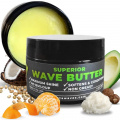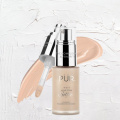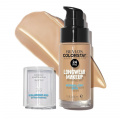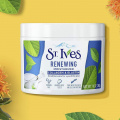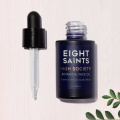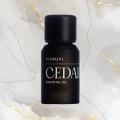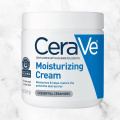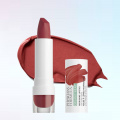Going Nuts over the Healthiest Nut Butter: Wellness in a Jar
Discover the healthiest nut butter options and indulge in this creamy, crunchy, delicious, and nutrient-rich spoonful of nature, guilt-free.
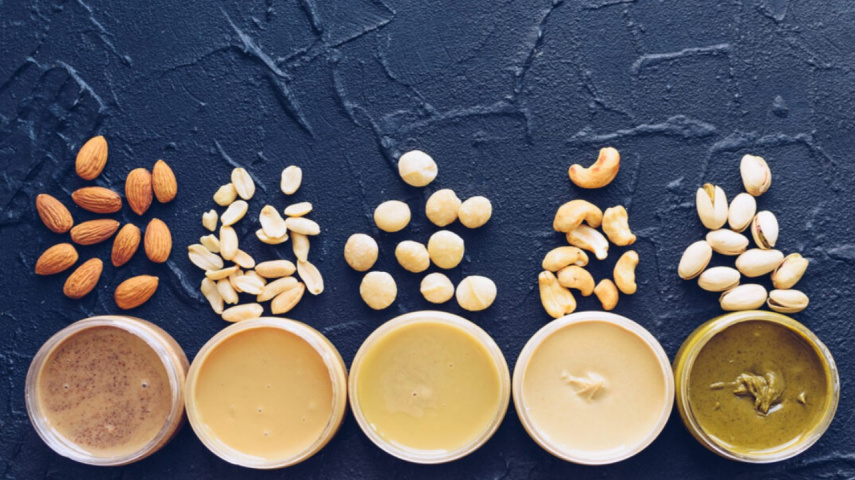
Nutty treats have always been mood boosters. Be it cakes, pastries, cookies, chocolates, ice-creams, or butter, they add the much-needed crunch to your bored taste buds. The days of having to choose only between crunchy and smooth varieties are long gone, thanks to the wide variety of healthy nut butters available today. However, having a wide range of options is more of a blessing than a bother, especially since half the world suffers from some sort of nut allergy. Embracing variety in nut butters allows you to explore new flavors and textures while catering to different dietary needs and preferences. When naysayers harp on how fattening they are, it is important to understand that nuts are rich in healthy fats and have an abundance of proteins, fiber, essential vitamins, and minerals. Our contributor Trish Gomez, who is a RDN and Certified Trainer, shares, “Nuts are nutrient dense, meaning that they are packed with a lot of nutrition in just a small serving. Most nuts are very good sources of vitamin E, magnesium, selenium, copper, as well as protein, fiber, and heart healthy fats. Nuts are good sources of antioxidants that ultimately help reduce cell damage and reduce disease risk. Incorporating nuts into our everyday diets has been shown to reduce our risk of inflammation, heart disease, diabetes and metabolic syndrome, and weight gain.” When choosing the healthiest nut butter next time,
10 Healthiest Nut Butters to Add to Your Diet
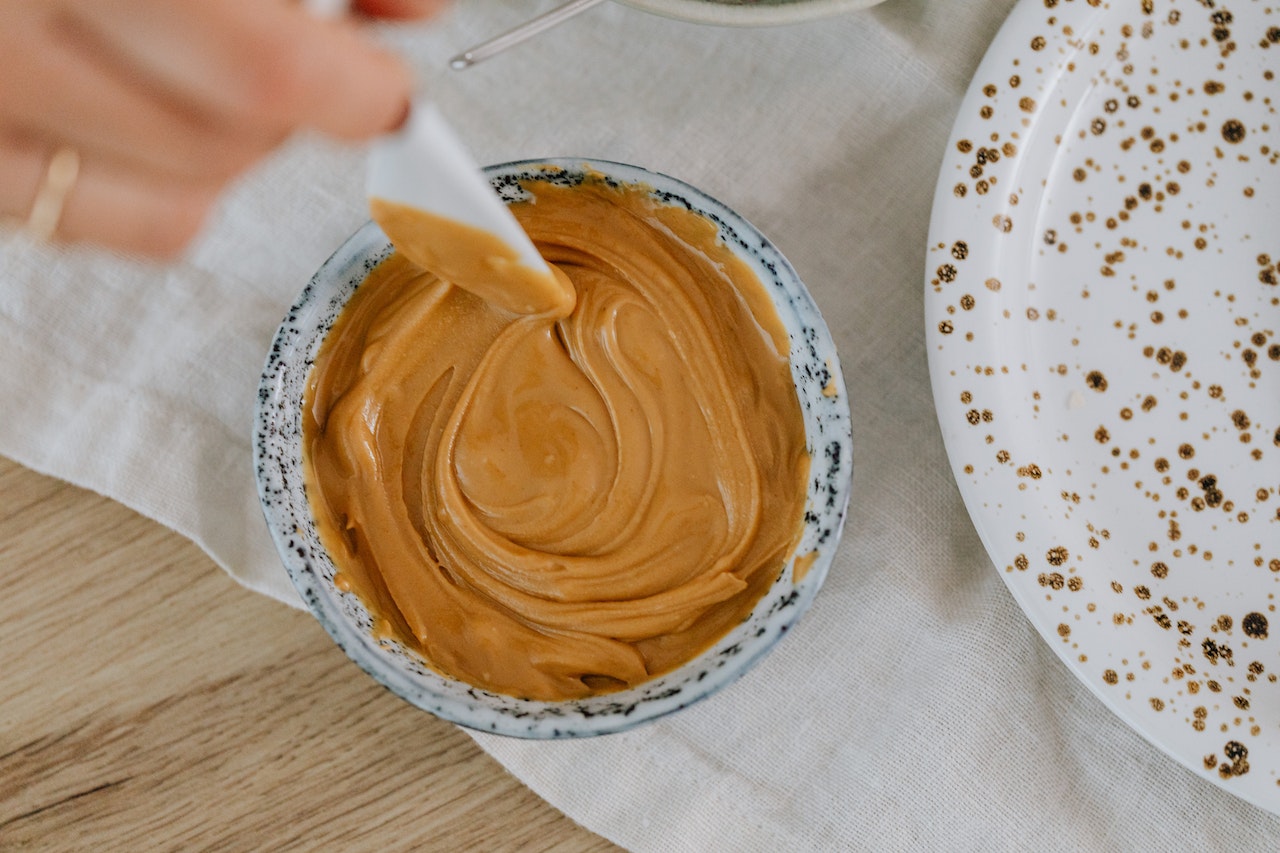
The thumb rule for selecting the best nut butters is to go for an organic, non-GMO product whose star ingredient is the ‘NUT,’ some salt, and a minimal quantity of a healthy oil to preserve its texture. Avoid nut butters with labels that list additional fillers, emulsifiers, sugars, natural flavors, or vegetable oils (like soybean or canola) that have undergone partial hydrogenation.
While peanut butter and almond butter are the most popular ones, you can skim through many more when choosing the healthiest nut butter. Here is a quick overview of some of the healthy nut butters available today:
1. Peanut Butter
Ah, this is the king of all nut butters and the most popular one worldwide. It is healthy, easily available, and budget-friendly. Made by grinding roasted peanuts into a smooth paste, it has one of the highest protein contents among the nut butters.
High in monounsaturated fats (MUFA), which are beneficial for heart health and blood sugar maintenance, it’s also rich in fiber, vitamin E, vitamin B6 and zinc, and minerals like potassium magnesium, iron and folate — all of which work together to boost overall health. Peanut butter’s enriched composition makes it quite heavy and filling, keeping you full for longer and preventing binge eating—ideal for weight management. Speaking of its ideal intake quantity, our contributor Trish Gomez, says, “Peanut butter is a good source of vegetable protein, with approximately 8 grams of protein per serving. A serving of peanut butter, however, is just two tablespoons, and it contains close to 200 calories. Limiting yourself to one 2 tbsp servings a day is a good idea.” Peanut butter can be spread on toast, added to sandwiches, oatmeal, or utilized as the base for yummy sauces (1),(2).
2. Almond Butter
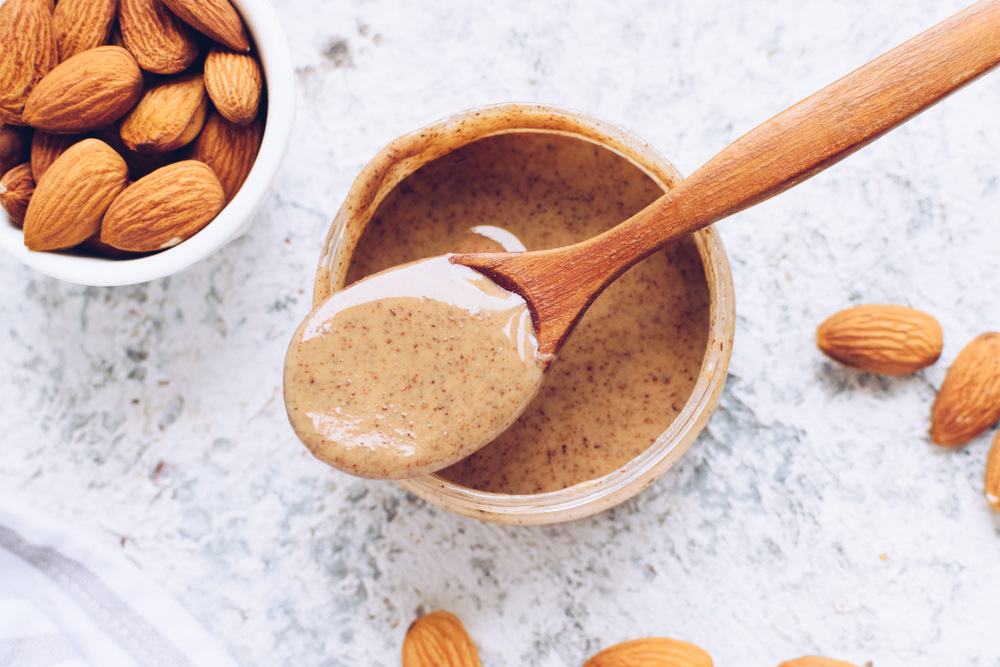
Almond butter is the most widely available nut butter in the market after peanut butter. Raw almonds are roasted to enhance their flavor and make them easier to blend. The roasted almonds are then ground in a food processor until they reach a creamy consistency with no additives.
Now the question arises, “Is almond butter healthy?” Yes, it contains a lot of MUFA, which are anti-inflammatory and can help lower bad cholesterol levels, thereby lowering the risk of heart disease. It is also packed with vitamin E, an antioxidant that supports healthy skin and protects cells from damage. Additionally, it provides protein, fiber, and essential minerals like magnesium and calcium for boosting bone and nerve health (3).
It can be used as a spread, added to smoothies, or used as a topping for cookies and waffles.
3. Cashew Butter
Cashews in themselves are delicious, so there is no doubt about the rich, creamy flavor of this nut butter. Cashew butter, made from cashew nuts, has a creamy, slightly sweet flavor.
This beneficial nut butter is a good source of protein, fiber, monounsaturated fatty acids (MUFA), vitamins, and minerals like copper and zinc (important for metabolism and antioxidant activity in the body). Cashew butter is known to support heart health, improve bone strength, aid in digestion, and enhance immune function through its anti-inflammatory and antioxidant activities (4),(5).
Its unique flavor and creamy consistency make it ideal for curries and stir-fries and can be used as a dip, added to salad dressings, or incorporated into dessert recipes.
4. Walnut Butter
Walnut butter contains the highest amount of polyunsaturated fat (PUFA), namely omega-3 fatty acids, which are ideal for heart health and reducing inflammation in the body.
It is also high in omega-6 fatty acids, such as alpha-linolenic acid (ALA), which can help lower your risk of heart disease, lower the risk of high blood pressure and cholesterol levels, and reverse atherosclerosis (blood vessel hardening).
Walnuts are generally a healthy food for the brain and boost memory function and cognitive skills, owing to their antioxidant properties (6).
You can spread walnut butter on toast, include it in smoothies, or top yogurt or oatmeal with it. Walnut butter can quickly go rancid when exposed to heat and air because of its high polyunsaturated fat content, so once opened, store it in a refrigerator.
5. Pecan Butter
Made from pecan nuts, this nut butter offers a rich, buttery flavor. In addition to significant vitamins and minerals, pecans have the highest phytochemical concentration of flavonoids of any tree nut, which makes it ideal as an antioxidant and anti-inflammatory agent. It is also rich in MUFA, fiber, and various vitamins and minerals. Pecan butter consumption has been associated with improved heart health, weight management, effective blood sugar regulation, enhanced digestion, and boosted immunity (7). Pecan butter imparts a sweet flavor and is ideal as a topping for porridge and ice cream. You can also use it for baking, blend it into energy balls, or enjoy it as a dip for fruits and vegetables.
6. Hazelnut Butter
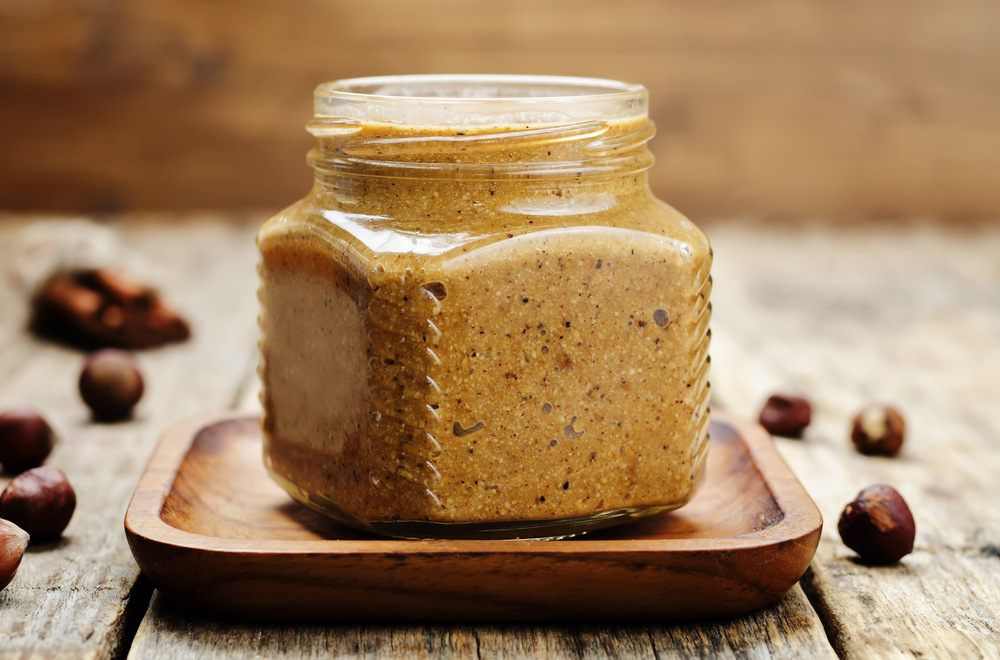
Derived from roasted hazelnuts, this nut butter is the best alternative for those with peanut allergies, who are looking for the healthiest nut butter with a similar taste—it has a distinct, not-so-sweet nutty flavor.
Booming with antioxidants, fiber, protein, Vitamin E, unsaturated fats (MUFA and PUFA), and minerals like magnesium and copper, it is good for cardiovascular health, diabetes control, weight loss, metabolism, brain function, and skin health (8). Hazelnut butter is a popular ingredient in chocolate treats and can also be used as a spread or added to smoothies.
7. Pistachio Butter
Pistachio butter, made from ground and pasted pistachio nuts, offers a vibrant green color and a subtle, unique flavor. It is popular for its complete protein profile and contains all nine essential amino acids (proteins).
Apart from that, it has a hearty proportion of copper (minerals) and vitamin B complex, with a minimal amount of fat. Scientific research suggests that pistachio butter consumption may promote heart health, aid in weight management, improve blood lipid levels, and support eye health (9),(5).
Pistachio butter is less greasy and more nutty because it barely has fats and oils, which makes it challenging to spread on toast. It can be mixed into yogurt or used as a topping for salads.
8. Macadamia Nut Butter
It is derived from roasted macadamia nuts and is known for its creamy texture and rich flavor. This butter is a rich source of healthy fats — MUFA (oleic and palmitoleic fatty acids), antioxidants, dietary fiber, protein, Vitamin E, manganese, thiamin, and copper. Taking macadamia butter may help improve heart health, blood lipids, and cholesterol levels. Moreover, moderate consumption of macadamia nut butter can aid in weight management, control blood sugar control levels, reduce inflammation, improve bone health, and enhance brain function (10). Macadamia butter can be added to roasted sweet potatoes or drizzled over smoothies.
9. Sunflower Seed Butter
Ideally, it is not a nut butter, as it is made from roasted sunflower seeds and is a popular alternative for those with nut allergies.
It is high in healthy fats, protein, fiber, vitamins E and A, and minerals like selenium and zinc. Sunflower seed butter may promote heart health, support brain function, aid digestion, promote restful sleep, and boost immune function. The butter is high in calories and low in proteins, so it warrants portion control (11),(5). This nut butter is usually an ingredient in baking and can be used as a dip with fruits.
10. Sesame Seed Butter (Tahini)
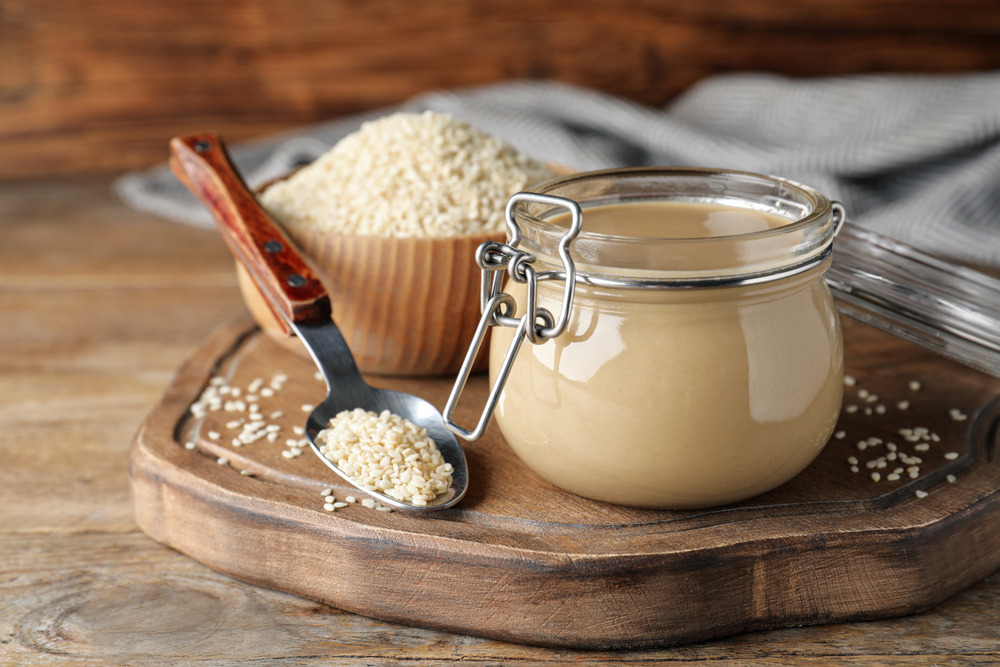
Sesame seed butter, commonly known as tahini, is made from ground sesame seeds and is a popular pick these days. The sesame seeds are hulled, toasted, and then ground to reach the desired consistency.
Sesame seeds are a good source of fiber, protein, healthy fats, vitamins, and important minerals like calcium, iron, and magnesium. It also contains substances like lignans and phytosterols, which have anti-inflammatory and antioxidant properties. Sesame seeds are known to improve heart health, reduce inflammation, boost bone health, and aid in digestion (12),(5).
Tahini is the key ingredient in hummus, a dip made from chickpeas. Tahini, when combined with lemon juice, garlic, and olive oil, becomes a delectable sauce for drizzling over roasted vegetables or grilled meats. Its versatility makes it a staple ingredient in a variety of cuisines, including Middle Eastern, Mediterranean, and even some Asian dishes.
Conclusion
The healthiest nut butter for you is the one that you can enjoy to the fullest and that fits your lifestyle. All nut butters are healthy if you choose an organic variety with no added sugars, preservatives, or refined oils and know how to limit your intake. The best nut butters are so delicious that you may not be mindful while eating them. Use only two spoonfuls, or as directed by your dietician.
Discovering your favorite healthy nut butters opens up a world of delicious recipes. From blending nut butters into oats for a nourishing boost to adding them to yogurt bowls, smoothies, and quick slices of bread, you can use them daily. Use your nut butters creatively for a healthy and delightful twist!
Contributor: Trish Gomez, Registered and Licensed Dietitian and Certified Personal Trainer
ALSO READ: Top 27 Foods That Make Your Buttocks Bigger





 JOIN OUR WHATSAPP CHANNEL
JOIN OUR WHATSAPP CHANNEL




































